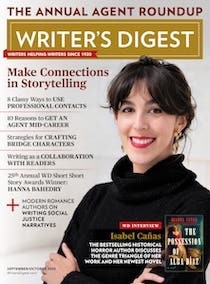A Quick Lesson in Word Economy
Comedy Writing Secrets In many literary forms, embellishment might enrich a piece; but when writing humor, less is better. A joke is not a short story. It’s a small story—often…
In many literary forms, embellishment might enrich a piece; but when writing humor, less is better. A joke is not a short story. It's a small story—often a single-sentence story—told in as few words as possible.
Professionals constantly rewrite jokes to remove unnecessary words, especially in the punchline. The following Mitch Hedberg joke is a picture of such high-impact shrinkage.
I'm against picketing, but I don't know how to show it.
Beginning writers, on the other hand, tend to fluff up a joke with unnecessary words. For example, the novice might write the same joke in the following ways.
I'm against picketing, but I don't know if I should protest it with a sign or whatever.
I'm against picketing, but I'm not exactly sure what ways to demonstrate it.
I'm against picketing, but I don't know how to let other people know that I'm against it.
Each of the alternative tag lines delivers the same general idea, but the punch of the play on words is lost in the verbiage. Professionals call the use of too many words in a punchline frosting the flake or stacking the wack.
Your goal is avoid extra words and get to the joke as soon as possible. Brent Forrester defined this as the Humor and Duration Principle, which, simply put, states that the less time you take to get to the joke, the funnier the joke will be. Embellishing a setup or punchline diminishes the funniness of a joke.
Scott Francis is a former editor and author of Writer's Digest Books.



